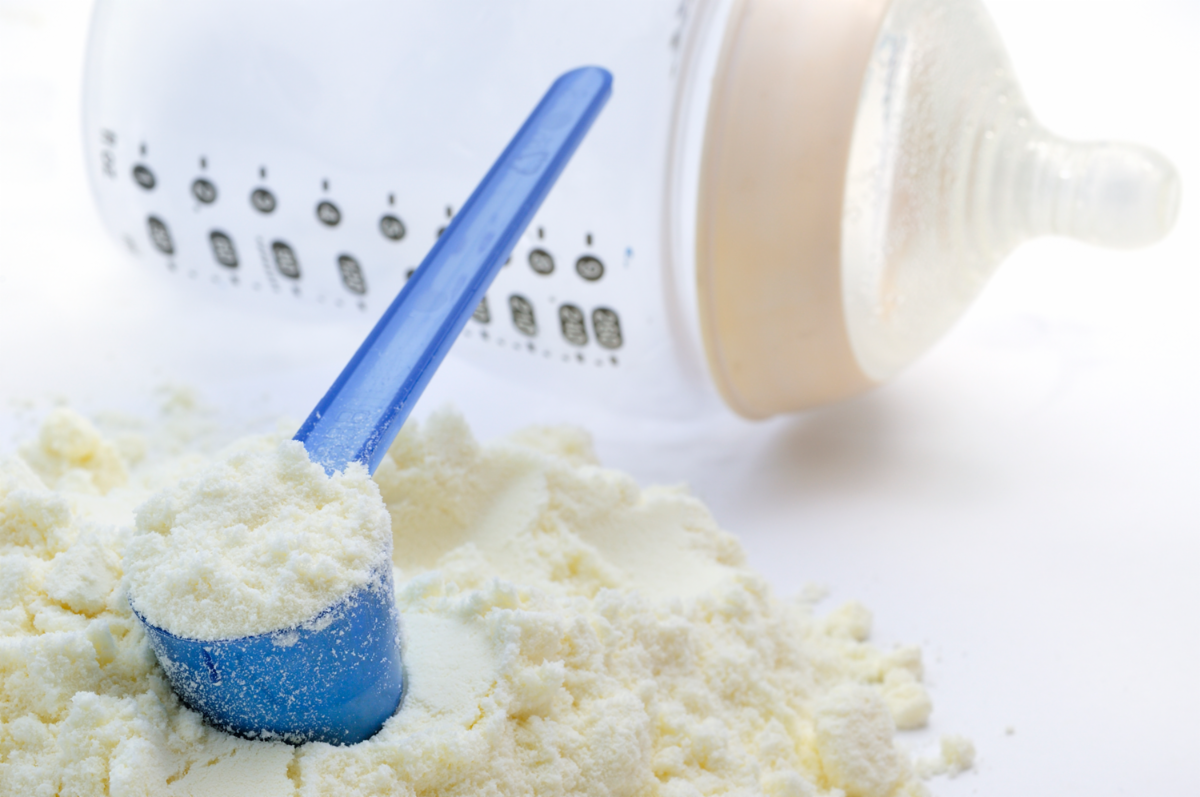The family of a Missouri newborn who contracted bacterial meningitis after she was fed Enfamil Powdered Infant Formula has filed suit against Enfamil maker Mead Johnson.
 The family of a Missouri newborn who contracted bacterial meningitis after she was fed Enfamil Powdered Infant Formula has filed suit against Enfamil maker Mead Johnson. The suit claims Enfamil has known for more than a decade that its unsterilized powder formula frequently tests positive for harmful bacteria, yet they did not warn parents or caregivers that it should not be used for babies under 29 days old.
The family of a Missouri newborn who contracted bacterial meningitis after she was fed Enfamil Powdered Infant Formula has filed suit against Enfamil maker Mead Johnson. The suit claims Enfamil has known for more than a decade that its unsterilized powder formula frequently tests positive for harmful bacteria, yet they did not warn parents or caregivers that it should not be used for babies under 29 days old.
Enfamil powdered infant formula is a non-sterile product. Every newborn in America who consumes powdered Enfamil is at risk of contracting a serious bacterial infection and becoming seriously ill and/or dying, yet Mead Johnson continues to negligently market the product as safe for children 0-12 months old.
Mead Johnson warned only a limited number of healthcare professionals of potential bacterial contamination in 2002, and powdered Enfamil was recalled in 2002 and 2003. FDA testing in 2004 revealed in March 2004 that 23%-nearly one in four-containers of powdered Enfamil were contaminated with dangerous bacteria.
Babies younger than 29 days old, like the Missouri newborn, do not have adequately functioning immune systems that would allow them to fight infections from bacteria like that often found in powdered Enfamil. In this case, the baby was infected with a bacteria called cronobacter sakazakii. This bacteria is among those found in FDA testing of Enfamil, and was the bacteria responsible for serious illness and death that led to earlier recalls.
The Missouri baby, a little girl from Jefferson County, contracted bacterial meningitis caused by cronobacter sakazakii. She suffered severe complications, including seizures and strokes, which caused brain damage and severe and permanent impairments. This suffering and life-long damage of an innocent child could have been avoided completely had the parents been warned not to use powdered formula, or had the formula not been available to begin.
Harmful bacteria cronobacter sakazakii and enterobacter cloacae have been found in sealed containers of Enfamil Powdered Infant Formula. Infection from either bacteria can lead to sepsis, bacterial meningitis, and necrotizing enterocolitis, especially in newborns.
Harmful bacteria can also be introduced as parents and caregivers prepare the product, a fact most parents are not aware of. This bacteria is closed into the reusable canister and, by the product’s very nature, make its way into baby bottles. It can also grow in bottles when a child doesn’t finish prepared formula in one feeding. The lawsuit contends that Mead Johnson has not adequately warned consumers of these dangerous and even deadly threats. They have also not educated consumers that a safer alternative, liquid infant formula, is a sterile product that does not carry these risks.
Not only did Mead Johnson not share the dangers with parents of newborns, but they used hospitals to pedal their products to unwitting parents. In this case, Mercy Hospital, as well as Walgreens and Shop ‘n Save where the formula was sold, are named as co-defendants.
This lawsuit is particularly important because Mead Johnson must be held accountable for their irresponsible actions. The company has known that it has been marketing an unsafe product for years. No infant and their family should have to endure the pain, suffering, and long-term implications of falling ill due to a product parents have been given every reason to believe is safe. Lawsuits are one of the only ways consumers can change the actions of companies and affect the laws that regulate them.
Parents of newborn infants who are given Enfamil Powdered Infant Formula should be alert for any changes in their baby’s health, especially these symptoms of cronobacter infection:
- Poor feeding response
- Irritability
- Yellow tone to skin and eyes
- Grunting while breathing
- Fever or reduced body temperature
This type of infection can turn into meningitis, an inflammation of the membranes that surround the brain and spinal cord. Signs of meningitis in newborns include:
- High fever
- Constant crying
- Excessive sleepiness or sluggishness
- A bulge in the soft spot of baby’s head
- Stiffness in the neck
- Seizures
These infections can be treated, but it is imperative that parents and caregivers seek medical help immediately.
If your child suffered a serious illness after being given Enfamil Infant Formula, contact OnderLaw for a free, no-obligation case evaluation. We can ease the burden of walking through this difficult journey, and together we can make a difference so that no more children will suffer. Contact us now.












